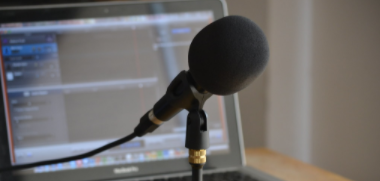
AI Occupational Exposure score unavailable For more insight, research the specific tasks and skills required for the role.
Explore all careersA Sound Engineer ensures audio quality during various productions, using equipment to monitor and edit sound while collaborating within a team.
Get qualified to work as a Sound Engineer with a course recognised across Australia. Speak to a training provider to learn more.
In Australia, a full time Sound Engineer generally earns $1,500 per week ($78,000 annual salary) before tax. This is a median figure for full-time employees and should be considered a guide only. As you gain more experience you can expect a potentially higher salary than people who are new to the industry.
 Courses.com.au Team
Courses.com.au Team
This industry has seen moderate growth in employment numbers over the last five years. There are currently 3,000 people working as a Sound Engineer in Australia. Sound Engineers may find work in larger cities and towns where productions are based.
Source: Australian Government Labour Market Insights
 Courses.com.au Team
Courses.com.au Team
A Diploma of Music Industry is a great qualification if you’re thinking of starting a career as a Sound Technician. You’ll explore a range of techniques for arranging, recording and mixing music. If you decide to take your studies further you could consider an Advanced Diploma of Music Industry where you’ll extend your skills in sound production.
 Courses.com.au Team
Courses.com.au Team



A Sound Engineer attends to the audio quality and sound recording during music, radio, film, television or stage productions. You might monitor sound broadcasts during live shows or edit and enhance audio being recorded. Sound Engineers use a range of equipment from microphones to editing consoles. You might mix together audio or use techniques to add special sound effects.
A Sound Engineer needs to have excellent attention to detail. You’ll need to work to a production schedule and be a part of a larger team. Sound Engineers need good technical abilities and you’ll have to be skilled at operating a range of equipment. Depending on your role you might work irregular hours and may have to work on locations outside of a studio.